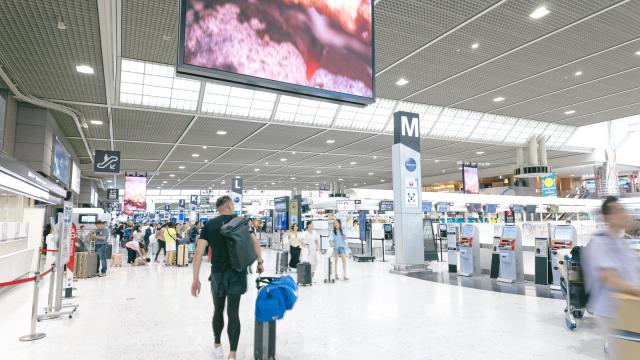
New immigration procedures will affect visitors from 71 countries and regions.
Travelling to Japan as a tourist has been a breeze for visitors from 71 visa-exempt countries and regions, as there’s no requirement to obtain a short-stay visa at a local embassy prior to travel. However, that’s all set to change in the future, as the Japanese government has announced plans to introduce a new travel authorisation system which will require visitors to declare personal information online in order to enter the country.
The new system is said to run in a similar way to ESTA (Electronic System for Travel Authorisation) in the U.S., which was introduced as an anti-terrorism measure. Just as ESTA determines the eligibility of visitors to travel to the United States under the Visa Waiver Program, the Japanese version, which the government has tentatively named JESTA, will also screen visitors prior to entry, using a similar online system.
The government says the aim of the new system is to reduce the number of illegal immigrants who come to Japan from visa-exempt countries and regions and remain beyond the valid period of stay, which currently ranges from 14-90 days depending on the passport. Under the current system, international airlines provide the government with passenger information for screening shortly after takeoff, which means travellers who don’t pass the screening still arrive in Japan, and although they are officially ordered to leave the country, many fail to do so.
According to the government, the number of people who abuse the system and stay illegally in the country is considerable — as of January 2024, out of the 49,801 short-term visitors who are currently overstaying illegally, more than 28,000 came from countries and regions with visa exemption agreements.
JESTA will require visa-exempt foreign nationals to declare their purpose of entry and place of stay online for screening by the Immigration Services Agency before they travel. If the application is flagged as an illegal-stay risk, the travel authorisation required to leave the country will not be granted, and the traveller will be encouraged to obtain a formal visa through their local embassy instead.
Travellers from the following 71 visa-exempt countries and regions will be required to declare their details using JESTA when it’s launched.
- Andorra
- Argentina
- Australia
- Austria
- Bahamas
- Barbados
- Belgium
- Brazil
- Brunei
- Bulgaria
- Canada
- Chile
- Costa Rica
- Croatia
- Cyprus
- Czech Republic
- Denmark
- Dominican Republic
- El Salvador
- Estonia
- Finland
- France
- Germany
- Greece
- Guatemala
- Honduras
- Hong Kong
- Hungary
- Iceland
- Indonesia
- Ireland
- Israel
- Italy
- Latvia
- Lesotho
- Liechtenstein
- Lithuania
- Luxembourg
- Macao
- Malaysia
- Malta
- Mauritius
- Mexico
- Monaco
- Netherlands
- New Zealand
- North Macedonia
- Norway
- Panama
- Poland
- Portugal
- Qatar
- Republic of Korea
- Romania
- San Marino
- Serbia
- Singapore
- Slovakia
- Slovenia
- Spain
- Suriname
- Sweden
- Switzerland
- Taiwan
- Thailand
- Tunisia
- Türkiye
- United Arab Emirates
- United Kingdom
- United States
- Uruguay
The government aims to allocate research costs for JESTA in next year’s budget, with plans for it to be in place by 2030. In addition, another system will be launched on a trial basis during this fiscal year whereby passenger information will be sent to the Immigration Services Agency after boarding procedures have been completed.
These details will be checked against a “blacklist” of travellers, including foreign nationals of interest and those with criminal records, which will then notify the airline so they can refuse boarding and prevent these individuals from travelling to Japan.
While JESTA is designed to keep Japan and its visitors safe, it will no doubt cause a headache for travellers who are used to the ease of entry afforded them under the visa exemption agreement. More details about how the site will work, including timelines for applying and personal information requirements, will be provided closer to the launch date.
Source: Sankei via Yahoo! Japan, Jin
Top image: Pakutaso
Insert images: Pakutaso (1, 2)
● Want to hear about SoraNews24’s latest articles as soon as they’re published? Follow us on Facebook and Twitter!